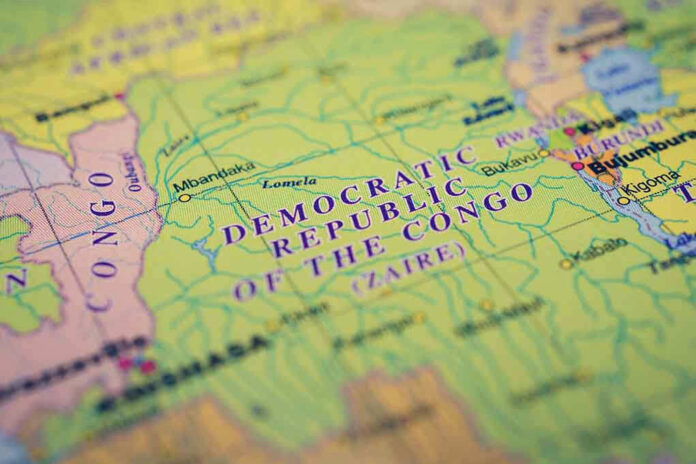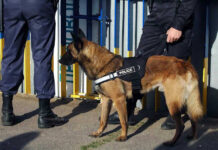
As the world reels from yet another devastating attack on a house of worship, the horrifying reality of unchecked terror in Africa stands in stark contrast to the priorities and failures of global leadership in recent years.
At a Glance
- At least 38 killed, dozens injured in an ISIS-linked assault on a Catholic church in Komanda, eastern Democratic Republic of Congo.
- The attack is blamed on the Allied Democratic Forces (ADF), a group with a long record of mass killings, kidnappings, and targeting Christians.
- Local authorities and humanitarian groups condemn the violence, while communities face ongoing fear and displacement.
- The tragedy underscores the consequences of weak governance, international neglect, and misplaced global priorities.
Church Massacre Exposes Deadly Cost of Global Inaction
On July 27, 2025, the town of Komanda in eastern Democratic Republic of Congo (DRC) was shattered by a bloodbath that left at least 38 people dead and dozens more wounded. The attack, attributed to the notorious Allied Democratic Forces (ADF), an ISIS-affiliated rebel group, struck a Catholic church during a prayer gathering. This was not the first time the faithful have been targeted, but the scale and savagery of the assault has shocked even the most hardened observers.
The ADF’s reign of terror is nothing new. The group, which began as a Ugandan Islamist insurgency in the 1990s, shifted its operations to the DRC, exploiting the chronic instability of the country’s east. Since pledging allegiance to ISIS in 2019 and adopting the ISCAP moniker, the ADF has escalated its campaign of violence — and the world, for the most part, has looked away. This time, the terrorists stormed a church, slaying men, women, and children, abducting worshippers, and leaving a community in ruins. The death toll, now reported between 35 and 43, may rise as more bodies are discovered and more victims succumb to their injuries.
ADF’s Brutality and the Failure of Governance
The ADF’s tactics are nothing short of barbaric: guns, machetes, abductions, and a calculated targeting of Christians and other civilians. The attack in Komanda fits a pattern that has become sickeningly familiar in the region. Ituri province, where Komanda sits, is plagued by a toxic mix of ethnic violence, weak government presence, and a humanitarian crisis that never seems to end. The Catholic church, a place of solace and unity for locals, became a slaughterhouse simply because it stood as a symbol of faith and hope in a lawless land.
Congolese authorities have scrambled to respond, promising to hunt down the perpetrators and restore order. Human rights advocates and local NGOs, such as the Convention for the Respect of Human Rights, have condemned the violence and demanded action. Yet, these groups operate with precious little support and even less protection. The United Nations and other international actors remain on the sidelines, offering words, not solutions, in the face of evil that grows bolder with each attack.
Communities Left to Fend for Themselves
The direct victims of this massacre are, of course, the parishioners and families who lost loved ones. But the impact ripples outward. Survivors are traumatized, residents flee in fear, and the local economy grinds to a halt. Religious institutions in the region now find themselves under siege, forced to weigh the risks of holding public worship against the spiritual needs of their communities. The attack has further eroded trust in the Congolese government, already viewed as powerless to protect its citizens. The ADF, meanwhile, exploits every failure of governance, recruiting new followers from the ranks of the disillusioned and desperate.
Experts warn that the long-term consequences could be dire. The more the government fails to respond, the greater the risk that armed groups will fill the vacuum. Humanitarian organizations, already stretched thin, face operational dangers that may force them to curtail or withdraw critical aid. The cycle of violence, poverty, and displacement feeds upon itself, with little indication of meaningful intervention from regional or international powers.
Global Priorities: A Stark and Shameful Contrast
The tragedy in Komanda should serve as a wake-up call, not just for Africa but for the world. While global elites obsess over climate virtue-signaling, gender pronouns, and open-border policies that reward lawlessness, innocent people are being butchered in their churches for practicing their faith. The same governments and organizations that lecture Americans about “equity” and “inclusion” seem curiously silent when Christians are massacred in Africa. Where are the urgent summits, the blue-ribbon panels, the billions in emergency aid for these victims?
For years, Americans have watched as their own borders are left wide open, criminals are coddled, and resources are squandered on programs that undermine national security and family values. Meanwhile, the actual, literal slaughter of innocents abroad — often by groups affiliated with the very same jihadist ideology that threatens the West — is met with little more than a shrug. It’s a grotesque misallocation of attention and resources, driven by an elite class more interested in advancing its radical agenda than in defending civilization or the values that built it.
Sources:
Al Arabiya (AFP), July 27, 2025
The Jerusalem Post (Reuters), July 27, 2025
The Straits Times, July 27, 2025












